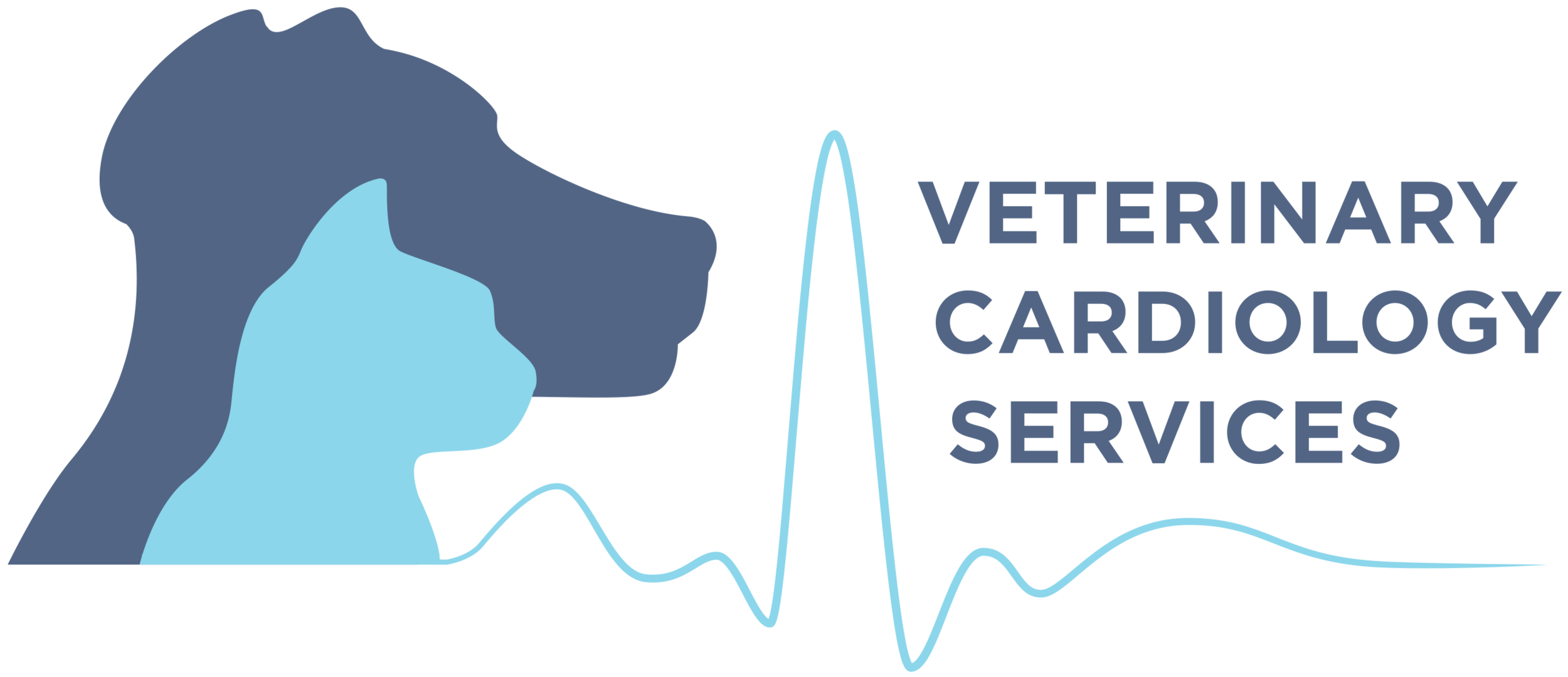Exploring the Necessary Solutions Provided by a Veterinary Cardiologist: Understanding Ultrasound and CT Check Strategies
Veterinary cardiologists play an important role in the wellness of family pets by detecting and dealing with various heart disease. They utilize innovative imaging methods, such as cardiac ultrasound and CT scans, to provide accurate analyses. Each approach has its unique advantages and applications. Recognizing these methods is vital for animal proprietors seeking the best look after their buddies. What factors should family pet owners take into consideration when selecting between these analysis tools?

The Function of Vet Cardiologists in Pet Dog Healthcare
Veterinary cardiologists play an essential function in the health care of family pets, concentrating especially on identifying and dealing with heart-related problems. They have specialized training that permits them to analyze intricate analysis examinations and identify various cardiovascular issues. These professionals utilize advanced techniques, such as echocardiography and electrocardiography, to assess heart function and framework accurately.Veterinary cardiologists additionally create customized treatment plans that may include drugs, way of living adjustments, and, sometimes, surgical treatments. Their proficiency reaches educating pet proprietors regarding heart health, stressing the relevance of routine examinations and early discovery of possible problems. Collaboration with basic vets is important, as it guarantees comprehensive look after pet dogs with presumed heart concerns. By using specialized services, vet cardiologists substantially improve the lifestyle for pet dogs and supply assurance for their owners, enhancing the significance of heart health in total animal health.
Typical Cardiac Problems in Pets
Usual cardiac concerns in animals can substantially affect their health and lifestyle. Heart murmurs, numerous types of cardiomyopathy, and genetic heart problems are amongst the most common problems that vets experience. Ultrasound For Dogs. Comprehending these concerns is vital for pet dog owners to ensure prompt medical diagnosis and proper therapy
Heart Murmurs in Pets
Heart murmurs can be a resource of concern for animal proprietors, they are not constantly indicative of serious health problems. A heart whispering is an abnormal sound created by unstable blood circulation within the heart. In pet dogs, these murmurs can be triggered by different aspects, consisting of congenital heart problems, valve problems, or perhaps tension during assessments. Several pets with heart murmurs lead normal lives without significant health and wellness effects. To figure out the underlying reason, vet cardiologists often employ diagnostic techniques such as echocardiograms and Doppler ultrasounds. Early detection and assessment are important, as they may help handle any possible cardiac problems properly. Pet dog proprietors are urged to consult their veterinarian for a detailed examination if a heart whispering is discovered.
Cardiomyopathy Kind Explained
Cardiomyopathy encompasses a team of illness affecting the heart muscle mass, causing jeopardized heart function in pets. One of the most typical kinds include dilated cardiomyopathy (DCM), hypertrophic cardiomyopathy (HCM), and restrictive cardiomyopathy (RCM) DCM primarily influences pets, creating the heart to expand and compromise, which lessens its capability to pump blood successfully. On the other hand, HCM is a lot more widespread in pet cats, identified by the thickening of the heart walls, typically resulting in obstructed blood circulation. RCM, though less usual, happens when the heart muscle comes to be stiff, limiting its ability to loaded with blood. Each type presents special challenges in medical diagnosis and treatment, necessitating specialized vet cardiological assessment to assure peak administration and look after influenced animals.
Genetic Heart Problems
Genetic heart problems stand for a substantial group of cardiac issues in pet dogs, unique from acquired problems such as cardiomyopathy - CT Scans For Animals. These problems are architectural abnormalities present at birth, influencing the heart's normal feature. Usual types include license ductus arteriosus, ventricular septal problems, and pulmonic constriction. Signs and symptoms may differ extensively, ranging from moderate to extreme, and can include exercise intolerance, coughing, and trouble breathing. Early diagnosis through sophisticated imaging strategies like ultrasound is important for efficient monitoring. Veterinary cardiologists play a crucial duty in identifying these conditions and suggesting proper therapy alternatives, which may consist of clinical monitoring or medical intervention. Recognizing congenital heart flaws permits for much better outcomes and enhanced lifestyle for influenced pets
Understanding Cardiac Ultrasound: Exactly How It Functions
A considerable variety of vet methods currently use heart ultrasound as a crucial analysis device for evaluating heart wellness in animals. This non-invasive method makes use of high-frequency acoustic waves to produce pictures of the heart's framework and feature. During the procedure, a vet service technician applies a look at this website gel to the animal's chest and uses a transducer to emit ultrasound waves. These waves bounce off the heart and surrounding structures, creating real-time photos on a monitor.Veterinarians can examine numerous aspects of heart health, including chamber dimension, wall surface motion, and shutoff function. Additionally, heart ultrasound enables the detection of problems such as liquid accumulation and genetic heart problems. This method is essential for identifying problems that might not show up via standard radiographs. By giving thorough details regarding the heart's composition and efficiency, cardiac ultrasound help in developing efficient treatment prepare for pets suffering from heart illness.
The Relevance of CT Checks in Detecting Heart Issues
How do CT scans boost the diagnosis of heart problems in vet medication? CT scans offer detailed cross-sectional pictures of the heart and surrounding frameworks, permitting vets to picture complicated physiological partnerships. This imaging technique is specifically useful in identifying hereditary heart defects, heart tumors, and problems in capillary. By using advanced imaging algorithms, CT scans can analyze heart chamber dimensions and function, offering a thorough sight that may be tough to accomplish with typical methods.Additionally, CT angiography can visualize blood circulation and identify locations of constriction or obstruction, which is crucial for preparing prospective treatments. The rate and accuracy of CT scans additionally facilitate quick diagnoses, crucial in emergency situation circumstances. Ultimately, the incorporation of CT checks right into vet cardiology considerably boosts the accuracy of medical diagnoses, allowing targeted treatment plans and improving person outcomes for pets suffering from heart conditions.
Contrasting Ultrasound and CT Check Methods
While both ultrasound and CT scans are vital tools in vet cardiology, they supply distinctive benefits and limitations that affect their use in detecting heart disease. Ultrasound, or echocardiography, provides real-time imaging of the heart's structure and function, allowing vets to assess heart chambers, valves, and blood flow. It is especially reliable for examining conditions like coronary infarction and cardiomyopathy. Nonetheless, ultrasound may be restricted in envisioning specific anatomical structures due to client dimension or obesity.In contrast, CT checks deal detailed cross-sectional photos of the heart and bordering cells, making them perfect for identifying architectural abnormalities, lumps, or vascular problems. Although CT scans offer detailed insights, they need sedation and may entail radiation direct exposure. Eventually, the option in between ultrasound and CT checks depends upon the specific professional situation, the individual's condition, and the information needed for an exact diagnosis.
Therapy Alternatives Readily Available With Vet Cardiology
Vet cardiology provides a variety of treatment choices customized to resolve numerous heart conditions in pets. Treatment strategies frequently begin with way of life modifications, consisting of diet plan changes and exercise adjustments, focused on improving overall heart health. Drugs play a crucial role, with cardiologists visit here prescribing drugs such as diuretics, beta-blockers, and ACE inhibitors to improve and take care of symptoms heart function.In a lot more serious cases, interventional procedures, such as balloon valvuloplasty or stent positioning, might be required to alleviate blockages or boost blood circulation. For sure hereditary heart defects, surgical choices might be checked out to deal with architectural concerns. Furthermore, continuous tracking and follow-up care are necessary parts of a comprehensive therapy plan, permitting for timely adjustments based upon the family pet's feedback to therapy. On the whole, vet cardiology concentrates on supplying effective, customized like maximize the wellness and well-being of animal patients with heart conditions.
How to Prepare Your Pet for a Cardiac Examination
Preparing an animal for a heart analysis is vital to guarantee exact results and a smooth procedure. Owners need to first set up look these up the consultation with the veterinary cardiologist and talk about any kind of particular needs or worries. It is a good idea to keep food for a minimum of 12 hours before the evaluation, as this assists improve imaging quality throughout procedures like ultrasound or CT scans.Additionally, maintaining a calm environment on the day of the consultation can assist decrease the pet's anxiousness. It is advantageous to bring along any appropriate medical records, consisting of previous tests and medications (CT Scans For Animals). Proprietors need to likewise ensure that their pet dog is comfy and leashed during transportation to the center. Ultimately, familiarizing themselves with the examination procedure can ease worries and aid in asking educated questions throughout the examination. By complying with these actions, owners can contribute substantially to the efficiency of the heart analysis
Frequently Asked Inquiries
For how long Does a Cardiac Ultrasound or CT Scan Take?
The period of a heart ultrasound generally ranges from 30 to 60 minutes, while a CT check may take about 15 to half an hour. Variables such as the individual's condition can affect these time estimates.

Exist Any Kind Of Dangers Connected With These Analysis Treatments?

Can I Stick With My Pet Throughout the Procedure?
The veterinary center's plan typically determines whether animal proprietors can stay throughout treatments. While some centers motivate proprietor visibility for convenience, others may require splitting up to ensure safety and perfect conditions for diagnostic imaging.
Just how much Do These Analysis Tests Normally Expense?
The expenses of diagnostic tests, such as ultrasound and CT scans, typically vary based upon location and center. Usually, costs range from a few hundred to over a thousand dollars, showing the complexity and technology entailed.
What Is the Recovery Process After a Heart Analysis?
The recovery process after a heart analysis entails checking the pet dog for any type of prompt reactions, guaranteeing convenience, and restricting physical activity. Veterinarians normally give post-evaluation guidelines to direct family pet proprietors throughout this necessary recuperation period. Heart murmurs, numerous types of cardiomyopathy, and genetic heart defects are amongst the most common conditions that veterinarians encounter. A heart murmur is an abnormal sound created by rough blood circulation within the heart. Cardiomyopathy incorporates a group of diseases impacting the heart muscular tissue, leading to compromised heart function in family pets. Genetic heart defects represent a substantial classification of heart concerns in family pets, unique from obtained problems such as cardiomyopathy. Ultrasound, or echocardiography, gives real-time imaging of the heart's structure and feature, enabling veterinarians to assess heart chambers, shutoffs, and blood circulation.